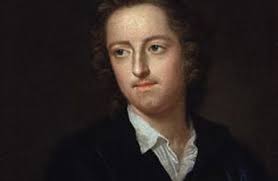The Curse Upon Edward
WEAVE the warp, and weave the woof,
The winding-sheet of Edward's race.
Give ample room, and verge enough
The characters of hell to trace.
Mark the year, and mark the night,
When Severn shall re-echo with affright
The shrieks of death, thro' Berkley's roofs that ring,
Shrieks of an agonizing King!
She-wolf of France, with unrelenting fangs,
That tear'st the bowels of thy mangled mate,
From thee be born, who o'er thy country hangs
The scourge of Heav'n. What terrors round him wait!
Amazement in his van, with Flight combined,
And Sorrow's faded form, and Solitude behind.
Mighty Victor, mighty Lord!
Low on his funeral couch he lies!
No pitying heart, no eye, afford
A tear to grace his obsequies.
Is the sable warrior fled?
Thy son is gone. He rests among the dead.
The swarm that in thy noon tide beam were born?
Gone to salute the rising morn.
Fair laughs the morn, and soft the zephyr blows,
While proudly riding o'er the azure realm
In gallant trim the gilded vessel goes;
Youth on the prow, and Pleasure at the helm;
Regardless of the sweeping whirlwind's sway,
That, hush'd in grim repose, expects his evening prey.
Fill high the sparkling bowl,
The rich repast prepare;
Reft of a crown, he yet may share the feast:
Close by the regal chair
Fell Thirst and Famine scowl
A baleful smile upon their baffled guest.
Heard ye the din of battle bray,
Lance to lance, and horse to horse?
Long years of havoc urge their destined course,
And thro' the kindred squadrons mow their way.
Ye Towers of Julius, London's lasting shame,
With many a foul and midnight murder fed,
Revere his consort's faith, his father's fame,
And spare the meek usurper's holy head.
Above, below, the rose of snow,
Twined with her blushing foe, we spread:
The bristled boar in infant-gore
Wallows beneath the thorny shade.
Now, brothers, bending o'er th' accursed loom
Stamp we our vengeance deep, and ratify his doom.
Edward, lo! to sudden fate
(Weave we the woof. The thread is spun)
Half of thy heart we consecrate.
(The web is wove. The work is done.)
